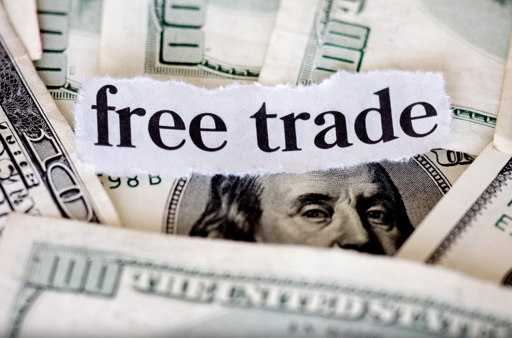Most forms of retaliation that countries are planning in response to Donald Trump’s tariff-fest involved higher tariffs and import restrictions. These measures may hurt the U.S. economy, but they will also hurt the country imposing them. The logic is that the measures will be crafted so that the pain in the U.S. will be greater than the pain the other country experiences.
That will likely prove correct, but the EU, Canada, and other newly created enemies can go one better. They can pursue retaliatory measures that will badly hurt the United States while actually helping their own economies. Specifically, they can announce a policy of no longer respecting U.S. patent and copyright monopolies for as long as Donald Trump is playing his silly tariff game.
There is serious money at stake here. Last year the United States received almost $150 billion in royalties and licensing fees. That’s more than 5 percent of all after-tax corporate profits.
And this is just in straight fees. It doesn’t count all the cases where the intellectual property is embedded in the product. For example, it would not count the value of the software in a U.S. made computer that was shipped to Canada or the EU. U.S. computer makers would have a much harder time competing overseas if their competitors could use the Windows operating system and other Microsoft software at zero cost.
There actually is precedent for not respecting the patents of countries in a confrontation. The United States used the Trading with the Enemy Act in World War I to allow compulsory licensing of patents held by German companies or nationals. This meant that companies were free to use these patents without permission of the German patentholders as long as they paid a modest licensing fee set by the U.S. government. Canada, the EU, and other U.S. trading partners can go the same route.
The neat aspect to this form of retaliation is that it would actually directly benefit consumers living in the countries that go this route. For example, they could get the latest drugs for treating cancer or heart disease as cheap generics, rather than paying the thousands or tens of thousands of dollars that a Pfizer or Merck might charge.



Rightsholders in the EU will lobby against this like rabid dogs. While it would benefit the consumer it would expose their revenue models to the cold calculation of whether the current intellectual is actually worth it on balnce. (Spoiler alert it almost certainly isn’t)